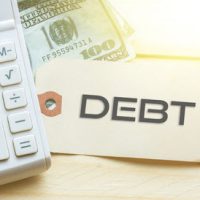Can The Consumer Financial Protection Bureau Make Junk Fees Go Away?

A common complaint among the 99 percent is that it is expensive to be poor. Unless you are rich, banks and businesses charge you to use your own money. ATMs charge you fees to access money that is already in your bank account. Credit card companies and utility companies charge you fees if you pay your bills too late, and home mortgage lenders and auto loan issuers charge you additional fees if you repay your debts too early. It seems like, every time you take a step toward paying off your debts, or even keeping up with your current bills, unexpected fees pop up to make your already tight budget even tighter. The Consumer Financial Protection Bureau aims to eliminate some of the fees that make it harder for consumers to pay their bills and satisfy their debt obligations. To find out which of the practices your creditors are using are illegal, as opposed to just plain unfair, contact a Plantation debt lawyer.
What Are Junk Fees?
Since 2010, the Consumer Financial Protection Bureau (CFPB) has been in charge of regulating debt collection practices, pursuant to the Fair Debt Collection Practices Act and the Consumer Financial Protection Act. This year, Rohit Chopra, director of the CFPB, has taken action against illegal fees attached to consumer financial products and bill payment systems. The CFPB has characterized these fees as “pay to pay,” such as charging an additional fee when customers pay a utility bill by phone or online instead of by postal mail. It has also referred to these fees as “junk fees” and “exploitive income streams.”
Lest one argue that the fine line between capitalism and extortion is a moving target, the CFPB has clarified that federal law prohibits businesses and lenders from charging surprise fees that are not specified in the service agreement or loan paperwork.
Which Fees Are Still Fair Game?
Although Chopra has indicated that he, on behalf of consumers, would like to see most late fees and pay-to-pay charges go the way of the dodo, but the U.S. Chamber of Commerce thinks that eliminating fees on a large scale would do more harm than good, and it has cast doubt on whether it is even legal to get rid of most of the fees that the CFPB aims to remove. By this logic, the fees enable lenders to provide loans that they would not otherwise be able to afford to provide.
For the time being, at least, any fees explicitly indicated in loan agreements and service contracts still stand. As usual, you should read the fine print before taking out a loan or agreeing to pay for something in installments.
Contact a South Florida Debt Lawyer About Little Fees That Add Up
A South Florida debt lawyer can help you if businesses and lenders keep nickel and diming you with unexpected charges and fees, making it almost impossible to make a dent in your debt. Contact Nowack & Olson, PLLC in Plantation, Florida to discuss your case.
Source:
cnbc.com/2022/06/29/debt-collectors-pay-to-pay-fees-often-illegal-says-watchdog-agency.html
